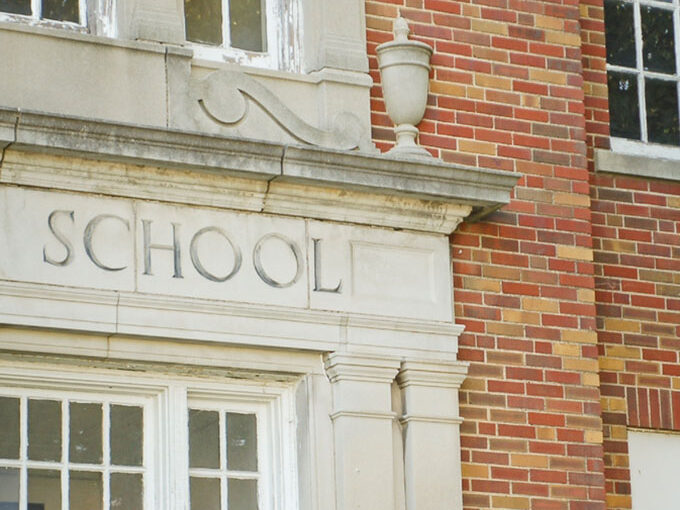This month, we spotlight:
- The increase in US import tariffs,
- A court decision concerning the Tour Operator’s Margin Scheme for ride hailing services,
- A case concerning the VAT exemption for the provision of education services, and
- HMRC appealing the VAT rate of ‘Mega Marshmallows’ in court.
From 5 April, the US has applied a base rate of customs duty of 10% with respect to UK goods imported into the US. Specific goods including motor vehicles, steel and aluminium, remain at a higher rate of duty than this base rate.
It was planned for other countries to be hit with higher reciprocal rates, including the EU with imports into the US from the Single Market being subject to 20% rate of duty. This was due to take effect on 9 April but the US has delayed the implementation for 90 days during which time a 10% rate will apply across the board, with the exception of imports from China and also higher rates already levied on specific goods.
UK businesses exporting to the US must immediately take stock and assess the impact of this increase. This will impact not only goods moving from the UK to US, but also where UK businesses are importing into the US from other export locations.
Some considerations to take into account when assessing the implications, include:
- Rules of origin: tariff rates will vary considerably depending on where goods have their origin. If they have their origin in a country subject to much higher reciprocal tariffs in the US, then those higher rates will apply, not the UK 10% rate.
- Commodity codes: whether the correct commodity code is being used – this is important if an agreement is reached for certain products to be excepted from the 10% rate and a lower rate of duty applies.
- Customs valuation: whether valuations are correct and based on a recognised customs valuation method.
- Pricing: tariffs are direct costs to the importer, and higher rates may need to be passed on to customers in terms of the cost, if current profit margins are to be maintained. This leads to questions regarding competitiveness in the market and concerns over demand decline.
- Location of manufacture: can the point of manufacture be moved to a jurisdiction who is subject to lower rates of tariffs for goods originating in that jurisdiction, either by general policy or through a trade agreement with the US?
- Pull out of US market temporarily: the viability of the US market for many businesses supplying goods to the US will need to be considered and for some, pulling out of the market, albeit temporarily, may become a necessity.
- Great scrutiny over duty drawback opportunities: goods which are imported into the US but then re-exported to another jurisdiction could be eligible for a drawback claim and in a climate of rising UK tariffs, the possibilities for drawback should be fully considered.
Comments
The “US Liberation Day” has sparked a wave of debate, speculation and analysis, on commercial, economic and political levels, as well as market turbulence. It remains to be seen to what extent countries will respond and impose their own tariff changes on imports from the US. The UK is reportedly trying to negotiate with the US to agree certain goods are subject to tariffs lower than the 10% base, and other countries are keen to strike deals with the US.
What is certain is that UK businesses shipping goods to the US need to assess the implications for them and take action to mitigate the additional costs. Expert advice is recommended, and Saffery is discussing the impact with its affected clients.
Please get in touch with Nick Hart, VAT Partner, to discuss how the tariff changes could impact your business.
In March, the Upper Tax Tribunal (UT) rejected an appeal from HMRC to prevent the ride-hailing app Bolt from using the Tour Operators’ Margin Scheme (TOMS) for VAT accounting purposes (UKUT 00100). In the case of Bolt Services UK Limited UT/2024/000008, HMRC had appealed a decision from the First Tier Tribunal (FTT) where the decision had also gone in Bolt’s favour, as described in our January 2024 VAT Update.
TOMS is a specific VAT accounting mechanism which requires tour operators and travel agents (and other parties providing travel and accommodation services) to account for VAT on their margins ie the difference between selling price and relevant costs. Bolt had adopted TOMS rather than account for VAT on the full value of its service to consumers, producing a significant VAT saving for Bolt. HMRC argued that Bolt did not qualify as a tour operator or a travel agent and therefore should be accounting for VAT under normal rules. HMRC had a second argument against the use of TOMS by Bolt, around material alteration – if a bought-in supply is materially altered, the supply to which that cost relates is not subject to TOMS.
Bolt offers an online ride-hailing service. The drivers who pick up the ride requests through an app are all self-employed and provide their driving service to Bolt. Bolt in-turn supplies that service to its subscribers.
There are two elements to this case:
- The first being that to be able to use the TOMS, the services provided must be of a kind commonly provided by tour operators or travel agents. The UT agreed with the FTT’s decision that the Bolt service was similar to what would usually be offered by a tour operator to a traveller – the service being the provision of transport services to travellers, which falls within TOMS.
- The second issue was that the services provided should be supplied for the benefit of a traveller without material alteration or further processing. The UT also agreed with the FTT’s decision on this issue, as they decided that the services provided by the drivers to Bolt did not then have to form part of a wider in-house supply by Bolt to the traveller. The transport service remained the same when purchased and then re-supplied.
The UT concluded that Bolt could use TOMS and only pay VAT on its margins.
Comments
A notable win for the taxpayer and a decision which HMRC may decide to appeal again. Regardless, the decision may prompt HMRC to consider whether TOMS is still fit for purpose as a VAT reporting mechanism or whether it should be phased out. The original reason why TOMS was adopted as an EU measure was to prevent tour operators from having multiple overseas VAT compliance obligations to address. Given domestic transactions are pulled into TOMS because of the way the rules are structured, it leads to results which HMRC may feel are not within the spirit of what the mechanism is designed to achieve, and may decide it has had its day.
Additionally, the recent Sonder case (see our January 2025 VAT Update here), which concerns the serviced accommodation sector, should be of interest to any operators providing accommodation, travel services and the alike, in case there is an opportunity to apply TOMS when they had thought it not applicable.
For further information, please contact John Butterfield, VAT Director.
In the recent case of St Patrick’s International College and others UT/2023/000073, the Upper Tax Tribunal (UT) rejected an appeal regarding VAT exemption for educational supplies and agreed with HMRC that VAT exemption did not apply to the services being supplied by the appellants.
The case concerns the concept of fiscal neutrality as well as the eligibility to apply the VAT exemption which applies to supplies of education. The appellants were providers of higher education but do not qualify as being Higher Educational Institutions or Further Education Colleges, to which VAT exemption is available. The argument being that allowing exemption to those bodies but not the appellants, with respect to the provision of education, breached the principal of fiscal neutrality ie there was not a level playing field with respect to how the exemption is applied, to the disadvantage of some suppliers of education.
The appellants also argued the educational supplies they make are exempt as they are an ‘eligible body’ (a term referenced in the exemption legislation) providing teaching services and in the case of one of them, they also teach English as a foreign language as an eligible body.
The UT concluded VAT exemption could not be applied by the appellants, agreeing with the previous FTT decision. The court decided that the principles of fiscal neutrality had not been breached. The appellants are classified as ‘Alternative Providers’ which are not specifically included in the definition of eligible body, within the VAT exemption legislation, and are subject to a very different regulatory regime than HE or FE institutions. The court’s view being they were sufficiently different to mean they could be treated differently for VAT purposes without fiscal neutrality being breached.
On the other point the court rejected the appellant’s argument that because of the majority of pupils used student loans to pay for the services that meant the services must be eligible for exemption. The point that student loans are not consideration for the services being supplied meant this argument was unjustified in the UT’s view.
Finally, on the TEFL point, whilst one of the institutions did qualify for exemption with respect to the TEFL service, that did not mean that all of its other services also qualified, with the court concluding it was an eligible body for TEFL but not for the other educational services being supplied.
Comments
The VAT exemption for education applies when there is a supply of education by an eligible body. The eligible body point is often overlooked, and the definition of what qualifies as education, can be incorrectly applied. This leads to VAT exemption being adopted when the supplies are subject to VAT.
Eligible body is a defined term within the legislation (Group 6 Schedule 9 VATA 1994), and unfortunately the appellants in this case did not qualify (with exception of certain TEFL services which were not in question) and they were unable to convince the UT that the principal of fiscal neutrality had been breached by them having to account for VAT on services which qualifying institutions can apply VAT exemption to.
The matter of VAT and education continues to be big news with VAT being imposed on independent school fees from 1 January 2025. It’s a complex area and specialist advice, and support is recommended.
Please contact Nick Hart, VAT Partner, for further details.
In March, the Court of Appeal allowed an appeal from HMRC for whether ‘Mega Marshmallows’ made by Innovative Bites Ltd are considered to be confectionary and therefore must be standard rated.
Whilst many food items qualify for the zero rate of VAT, confectionary is excepted with the term meaning an item of sweetened prepared food which is normally eaten with the fingers.
When the case first went to the First Tier Tax Tribunal (FTT), Innovative Bites argued that their marshmallows were intended to be roasted and/or used as an ingredient in a s’more, rather than consumed on their own as a snack. They were also more likely to be eaten in the warmer months ie May to October, and they were often placed in the barbecue aisle in a supermarket, especially during these summer months.
HMRC claimed that they were more generally viewed as a snack and eaten with fingers. This meant they were classified as confectionary, making them ineligible to be zero-rated. The FTT agreed with Innovative Bites and concluded that customers were more likely to consume the marshmallows after roasting them and potentially using them as an ingredient, rather than as a snack.
HMRC appealed this decision to the UT, however the UT agreed with the FTT’s decision and dismissed HMRC’s appeal. The Court of Appeal, however, allowed the appeal and remitted the case to the FTT, where the burden will be on Innovative Bites to prove the marshmallows are not usually eaten with fingers, and therefore can be zero rated.
Comments
The wonderful world of VAT on food items is in the headlines again and this case having reached the Court of Appeal, is now back to the FTT, where the appellant will need to demonstrate that its product is not one which is normally eaten with the fingers. This may be a sticky ask, and if the test really comes down to this point, then one might expect HMRC to be successful at the FTT.
The regularity of food item VAT cases in the courts shows no sign of abating, which does beg the question why government does not make changes to the scope of the VAT zero rate to make the position clearer for all concerned.
Please contact Nick Hart, VAT Partner, if you would like more information.
Contact Us
Partner, Edinburgh
Key experience






